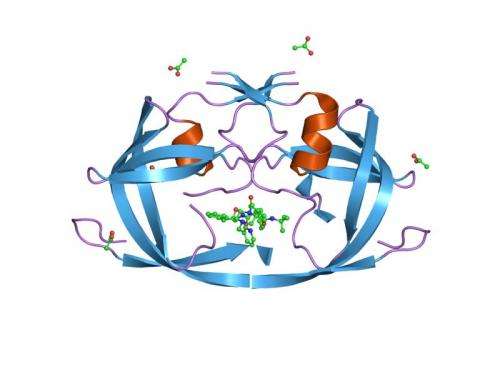September 6, 2019 report
Three teams fail to replicate results of 2016 HIV study that claimed 'cure' in monkeys

Three separate and independent teams of researchers have attempted to replicate the results of a team which, back in 2016, claimed to have cured monkeys of an HIV-like infection. All three have published their work and findings in the journal Science. Notably, the original paper was published in the same journal. After questions arose regarding the work done by the 2016 team, the editors at Science published an "editorial expression of concern."
The work by the team in 2016 involved giving monkeys infected with SIV (the monkey equivalent of HIV) the standard antiviral treatment for HIV—they also administered an antibody to target a protein called a4b7, which prior research had suggested the virus exploits to hide from antibodies. The team reported that nine months after discontinuing treatment, the monkeys showed no signs of resurgence of the virus. It appeared they had found a cure.
News of the possible cure spread quickly through the bioscience community, leading others to attempt to replicate these efforts, but none could. Then, reports emerged that one of the 2016 team members had substituted a different type of SIV virus during the study without telling anyone. Once outed, he explained that he had changed the virus because he thought it was more like the HIV virus in humans. That was enough for Science to publish its editorial of concern.
Once this news emerged, two teams of researchers attempted to replicate the results of the 2016 team using the same SIV variant. Both are now reporting that they were unsuccessful in their attempts to replicate the results, and both have published papers describing their efforts in Science. Meanwhile, another team tried to replicate the results, as well, using a third variant of SIV. They report in their article, also published in Science, that they were unable to replicate the results.
In light of the failure of all three teams to replicate the results of the 2016 team, Science Editor-In-Chief Jeremy Berg has published a letter in the journal describing his reasons for maintaining an editorial expression of concern rather than a retraction.
More information: M. Di Mascio et al. Evaluation of an antibody to α4β7 in the control of SIVmac239-nef-stop infection, Science (2019). DOI: 10.1126/science.aav6695
Peter Abbink et al. Lack of therapeutic efficacy of an antibody to α4β7 in SIVmac251-infected rhesus macaques, Science (2019). DOI: 10.1126/science.aaw8562
Nami Iwamoto et al. Blocking α4β7 integrin binding to SIV does not improve virologic control, Science (2019). DOI: 10.1126/science.aaw7765
Jennifer Sills et al. Editorial expression of concern, Science (2019). DOI: 10.1126/science.aaz2722
© 2019 Science X Network





















